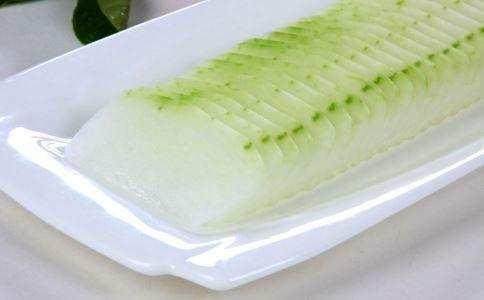Once hypertension is acquired, doctors will advise patients to control their weight, exercise more, reduce salt intake, increase calcium, magnesium, potassium, and vitamin D. Among these methods, dietary adjustments play a significant role in which, for hypertensive patients, besides mastering certain dietary principles, knowing which foods help lower blood pressure is essential.
Here the editor will share with you some dietary hypertension-lowering methods for high blood pressure.
High blood pressure diet recommendations
1. Celery Juice
Fresh celery 250g, washed, blanched in boiling water for 2 minutes, minced and juiced. Take 1 small cup each time, twice daily. Celery can soothe the liver and clear heat. Experiments have shown that celery has a certain blood pressure-lowering effect.
2. Spinach Salad
Fresh spinach 250g, washed, blanched in boiling water with a little salt for 2 minutes, then mixed with an appropriate amount of sesame oil. This dish has the effects of promoting blood circulation, resolving qi stagnation, nourishing blood, and moistening the intestines. It is often used to treat constipation, headache, facial flushing, and dizziness in hypertensive patients.
3. Winter Melon and Crucian Carp Soup
Winter melon 250-500g, crucian carp 200-250g (preferably the tail). Fry the fish tail in oil until golden brown, then add winter melon, enough water, simmer for 3-4 hours, add a little salt, season to taste. It has the effects of soothing the liver, dispelling wind, and heat, and is used to treat conditions like headache, dizziness, and hypertension.
4. Hawthorn and Lotus Leaf Tea
Hawthorn 15g, lotus leaf 12g, decoct in water and drink as tea. Hawthorn has multiple effects such as dilating coronary arteries, regulating lipids, and lowering blood pressure; lotus leaf can clear heat, invigorate the spleen, and promote appetite. This tea is suitable for hypertensive patients with abnormal blood lipids to drink regularly in hot weather.
5. Jellyfish and Luffa Soup
Jellyfish skin 30g, fresh luffa 500g, dried shrimp 10g, cook into a soup and consume. Jellyfish skin has functions of softening hardness, dispersing lumps, nourishing yin, soothing the liver, and moistening the intestines; luffa can clear heat, cool blood, soothe the liver, and eliminate wind; dried shrimp not only flavors the soup but also supplements the kidneys. Consuming this soup in summer is quite suitable for hypertensive patients.
6. Rubus Chingii Tea
Rubus chingii tea 10g, add 500-600ml water in a tea pot, boil for about 10 minutes, then add 300-400ml water, boil for 3-5 minutes, drink 3 cups a day, after 6 weeks, blood pressure could drop by 7 percentage points. Rubus Chingii tea contains tannins that enhance the flexibility and elasticity of blood vessels, reduce serum cholesterol, prevent fat deposition in blood vessels, and the tannic acid in tea can inhibit the increase of blood pressure, playing a role in lowering blood pressure for hypertensive patients. The fats and heavy metals on the blood vessel walls of hypertensive patients are largely salt-alkaline crystalline compounds, the Rubus Chingii tea supplied by the Beitian Valley grows in highly salt-alkaline land, which has a strong resistance to salt-alkaline properties. It has a good decomposing effect on proteins and fats, effectively preventing and removing fats and impurities from blood vessels, keeping blood vessels unobstructed, achieving the purpose of lowering blood pressure and lipids from the root.
Dietary considerations for hypertension
1. Avoid eating spicy and greasy foods
Hypertensive patients should avoid oily and spicy foods. Common spicy foods include onions, garlic, ginger, mustard, garlic chives, chili peppers, cinnamon, star anise, onions, etc., especially chili peppers should not be consumed by hypertensive patients. Chili peppers are heat-producing foods, although appetizing, they should not be consumed in excess during summer, especially by hypertensive patients. If hypertensive patients have symptoms like fever, constipation, pain, consuming chili peppers will worsen the symptoms and counteract the effects of antihypertensive medications. In summer, one should pay attention to a light diet rich in nutrients and regularly hydrate to prevent an increase in blood viscosity, preventing the onset of other cardiovascular and cerebrovascular diseases.
2. Avoid high-cholesterol foods
Hypertensive patients should control the consumption of cholesterol-rich animal fats and other foods (such as egg yolks, animal offal, fish roe, shrimp, crab roe, cuttlefish, etc.). Cholesterol is a substance that is not good for blood pressure, and foods high in cholesterol are also taboo for people with hypertension. Some people like to eat pig liver, beef brain, salty duck egg yolks, among others like dog meat, fatty pork, pig liver, chicken, duck eggs, brains, kidneys are all high in cholesterol, so it is best not to eat or consume them less.
3. Limit salt intake
Limiting sodium intake is beneficial for lowering and stabilizing blood pressure, and in the diet, salt used for cooking should be reduced, with a daily limit of not exceeding 6g per person. It is advisable to eat foods rich in potassium and calcium but low in sodium. Foods rich in potassium include potatoes, taro, eggplant, lettuce, kelp, winter melon, watermelon, oranges, etc. Foods rich in calcium include milk, yogurt, dried shrimp, sesame paste, green leafy vegetables, etc.
Three types of foods that hypertensive patients should not eat in summer
High-energy foods
High-energy foods (glucose, sucrose, chocolates, etc.) can induce obesity, and obese individuals have a higher incidence of hypertension than those with normal weight. Hypertensive patients often have comorbidities such as overweight or obesity. Therefore, patients with this condition should limit their consumption of high-energy foods.
Chicken Soup
Chicken soup is highly nutritious, but consuming it frequently can increase cholesterol and blood pressure. Therefore, chicken soup should not be blindly consumed as a nutritional supplement for patients, especially for those with hypertension. Otherwise, it will only aggravate the condition, causing harm to the body rather than benefits.


